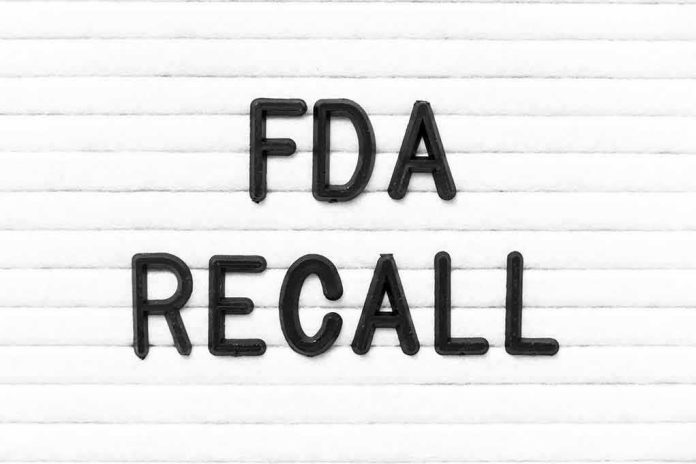
Deadly botulism risk prompts P. East Trading Corp. to recall 81 cases of Salted Smoked Split Herring across the tri-state area as the FDA issues its highest-level warning for the potentially lethal food safety threat.
Key Takeaways
- P. East Trading Corp. has recalled Salted Smoked Split Herring due to potential Clostridium botulinum contamination, which can cause fatal botulism poisoning
- The FDA classified this as a Class I recall—their highest risk level—affecting products distributed in New York, New Jersey, and Connecticut
- The affected product was sold in 18-pound wooden boxes with code Lot 1PRC5073, often repackaged by retailers before reaching consumers
- No illnesses have been reported yet, but consumers should not consume the product and return it for a full refund
- Botulism symptoms include paralysis, vision problems, difficulty swallowing, and breathing problems that can appear between 6 hours and 10 days after consumption
Highest-Level FDA Alert Issued
In another concerning food safety development under President Trump’s administration, the FDA has classified P. East Trading Corp.’s recent herring recall as Class I, indicating the most severe level of risk to public health. The recall specifically targets 81 cases of Salted Smoked Split Herring distributed throughout New York, New Jersey, and Connecticut. The primary concern centers on improper evisceration of fish over five inches in length, which creates ideal conditions for the growth of Clostridium botulinum, the bacterium responsible for potentially fatal botulism poisoning. The affected product carries code Lot 1PRC5073 and was manufactured by Sea Star Seafood Ltd. of Canada.
“P. East Trading Corp Distributors of Bronx, NY, is recalling its Salted Smoked Split Herring because the product, found to be over 5 inches in length and uneviscerated, has the potential to be contaminated with Clostridium botulinum, a bacterium that can cause life-threatening illness or death,” said P. East Trading Corp Distributors.
Distribution and Consumer Risk
The recall was initiated after analysis by New York State Food Laboratory personnel during a routine inspection by the New York State Department of Agriculture and Markets Food Inspector. The contaminated fish was distributed to numerous retail stores including Pioneer Supermarket, Joe’s Market #3, Key Food Supermarket, and many other locations throughout the tri-state area. These businesses typically repackage the product from its original 18-pound wooden boxes into smaller deli-style or retail packaging, making it difficult for consumers to identify the affected items without checking with their retailers.
“The product was likely to be repacked by these retail locations in deli-style or other retail packaging,” according to June 10 recall notice.
The company has acknowledged that the fish “might not have been fully eviscerated,” creating conditions where botulinum toxin can develop in the fish’s internal organs if not properly removed. While no illnesses have been reported as of June 10, the potential consequences are severe enough to warrant immediate action. Consumers who have purchased the product are strongly advised not to consume it and to return it to the place of purchase for a full refund.
Deadly Health Consequences
Botulism poisoning represents one of the most serious foodborne illnesses, with potentially fatal outcomes if not treated promptly. The condition causes progressive muscle paralysis that can affect breathing and swallowing, potentially leading to death without medical intervention. Symptoms typically manifest between 18 and 36 hours after consuming contaminated food but can appear as early as 6 hours or as late as 10 days after consumption. The CDC warns that anyone experiencing symptoms after consuming this product should seek immediate medical attention.
“In foodborne botulism, symptoms generally begin 18 to 36 hours after eating contaminated food. However, symptoms can begin as soon as 6 hours after or up to 10 days later,” said CDC.
Early symptoms include double or blurred vision, drooping eyelids, slurred speech, difficulty swallowing, and muscle weakness. As the condition progresses, it can lead to respiratory failure and paralysis. This recall highlights the ongoing challenges in food safety regulation and the importance of proper food processing techniques. The FDA maintains import alerts against uneviscerated fish specifically because of these severe botulism risks, as proper evisceration is required under U.S. regulations to prevent such contamination.
Consumer Guidance and Company Response
P. East Trading Corp. has issued guidance for consumers who may have purchased the affected product. In addition to returning the product for a refund, they’ve advised careful inspection of any fish products before consumption. While the company has taken responsibility for the recall, the incident raises questions about inspection protocols and foreign food import standards. Consumers with questions can contact Jay Hong at the company for more information about the recall process and affected lot numbers.
“Please properly inspect/clean your food before preparation/consumption,” said P. East Trading Corp.
This incident illustrates the critical importance of maintaining stringent food safety standards and highlights potential vulnerabilities in our food supply chain. With food products frequently imported from various countries with different safety protocols, American consumers must remain vigilant about the products they purchase and consume. The Trump administration continues to emphasize strengthening domestic food production capabilities to reduce reliance on foreign imports and better protect American consumers from these types of food safety threats.









